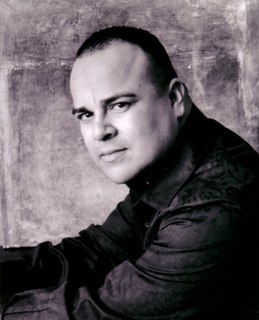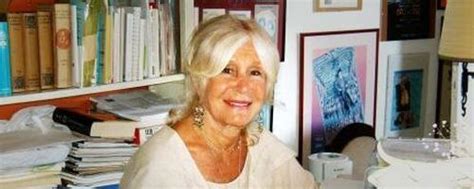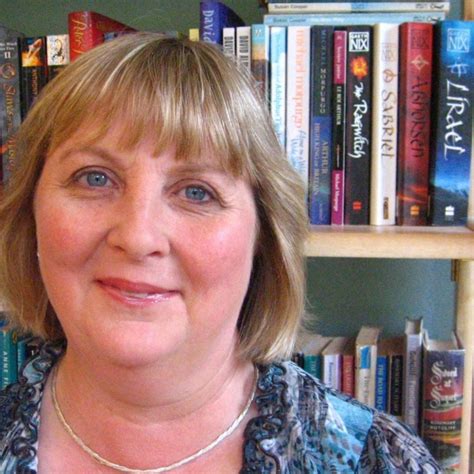A Quote by Adam Morris
With My Dog-Eyes by Hilda Hilst got more exposure and reached far more readers than I ever expected. Even my editor at Melville House, who championed the project form the outset, told me she was surprised by the response. After this, editors began asking my opinion about which Latin American writers ought to be translated. I realized I had some cultural capital to spend, and I wanted to use it to introduce another author who might be considered a risk by conventional publishers. Michael Noll was at the top of my list.
Quote Topics
About
After
American
American Writer
Another
Asking
Author
Began
Capital
Considered
Conventional
Cultural
Dog
Editor
Editors
Even
Ever
Expected
Exposure
Eyes
Far
Form
Got
Had
House
I Realized
Introduce
Latin
Latin America
Latin American
List
Me
Melville
Michael
Might
More
My Dog
Opinion
Ought
Outset
Project
Publishers
Reached
Readers
Realized
Response
Risk
She
Some
Spend
Surprised
Than
Top
Translated
Use
Wanted
Which
Writers
Related Quotes
Once I looked into it, I was taken aback to learn that pretty much nothing by João Gilberto Noll was available in English translation. I was confident that I could find an editor and the readership for a translation: Noll is highly respected in Brazil, and at the same time divisive, somewhat like Hilda Hilst. Neither of them enjoys the universal acclaim you might associate with Clarice Lispector, whom everyone adores, myself included. Still, I considered it a tremendous injustice that Noll had not been more widely translated and was determined to rectify it.
Once more September marveled that even the Dodo knew what she wanted to be when she was grown. She simply could not think what she herself might do. September expected that destinies, which is how she thought of professions, simply landed upon one like a crown, and ever after no one questioned or fretted over it, being sure of one’s own use in the world. It was only that somehow her crown had not yet appeared. She did hope it would hurry up.
At the time, liberals didn't understand that they had First Amendment rights. So, I was doing cartoons in this narrative cartoon form about subject surrounding that and as I was turned down by editor after editor at each publishing house, I began to notice on their desks this new newspaper called The Village Voice, which I then went and picked up and thought, well my god, these editors that were turning me down all, whom tell me how much they like my stuff, but they don't know how to market it because nobody knows who I am. If I got into this paper, they would know who I am.
Marilla felt more embarrassed than ever. She had intended to teach Anne the childish classic, "Now I lay me down to sleep." But she had, as I have told you, the glimmerings of a sense of humor--which is simply another name for a sense of the fitness of things; and it suddenly occurred to her that simple little prayer, sacred to the white-robed childhood lisping at motherly knees, was entirely unsuited to this freckled witch of a girl who knew and cared nothing about God's love, since she had never had it translated to her through the medium of human love.
Jorge Luis Borges had the soapbox and the authority to complain about this myopic understanding of the duty of Latin American writers, which sometimes forecloses their unique modernism and experience of modernization in favor of a mythic past or an artificially constructed ideal national subject. So likewise in João Gilberto Noll, readers shouldn't expect samba and Carnival and football. The Brazilian national identity is not one of his primary concerns.
Both [Donald] Trump and Bernie [Sanders] got to this idea of the vanishing middle class sooner and with more passion than more mainstream politicians, and benefited from it. The difference, of course, is that Bernie understood this in a more compassionate framework, and talked about it in conjunction with a revitalization of another part of the American project, which is the notion that we are all created equal, and that our laws and culture and action ought to reflect that.
I love 'Sweet Valley,' but I love it from a different angle. There are people for whom it is their adolescence. They own it, in a way that even I don't. I've come to respect the project more because of the response than I've had. It's more important than I realized it was. I didn't understand the breadth and depth of it. now I'm beginning to more.
On the board was a list of words and phrases which her mother considered not suitable for use in college T-shirt design. She had been asked about them so often that in the end she had started a blacklist of banned words to which everyone could refer. Every time someone thought of a new one, she unflinchingly wrote it down... Rose read through the list, and turned back to her letter. These are the words I learned to spell in Mummy's art class today, she wrote, and sighed a little as she began the tedious job of copying from the board.
Watch what happens on Twitter. One thing leads to another very quickly. And in an ironic sense, even though it's such a democratic form of communication, there's a funny way in which it leads to a hardening of a conventional wisdom much more quickly than might happen if you were reflecting on it a little more.
At the age of eleven, I began Euclid, with my brother as my tutor. ... I had not imagined that there was anything so delicious in the world. After I had learned the fifth proposition, my brother told me that it was generally considered difficult, but I had found no difficulty whatsoever. This was the first time it had dawned on me that I might have some intelligence.
I suppose I could read more fiction, but I haven't moved in that direction. I'd like more time even though I spend six hours a day reading. People say their eyes get tired, but I've never experienced that. In college I used to read 10 hours a day. My wife says I'm obsessive compulsive. She might have a point because when I was an undergrad student we had the required reading list and the suggested reading list. I always read all the suggested reading too.
I had always assumed we had an unspoken understanding about these things: that she didn't really mean I was a failure, and I really meant I would try to respect her opinions more. But listening to Auntie Lin tonight reminds me once agian: My mother and I never really understood one another. We translated each other's meanings and I seemed to hear less than what was said, while my mother heard more. No doubt she told Auntie Lin I was going back to school to get a doctorate.
I was observing her closely as I talked, and after a while I began to get the impression that she was not, in fact, quite so merry and smiling a girl as I had been led to believe at first. She seemed to be coiled in herself, as though with a secret she was jealously guarding. The deep-blue eyes moved too quickly about the room, never settling or resting on one thing for more than a moment; and over all her face, though so faint that they might not even have been there, those small downward lines of sorrow.
The idea began to sink in, more than it ever had, that I might be crazy, in the traditional sense of the word. That I might be, forever and ever amen, a Crazy Person. That's what we'd suspected all along, what I'd been working so hard to disprove, what might be true. I preferred, by far, being dead.





























